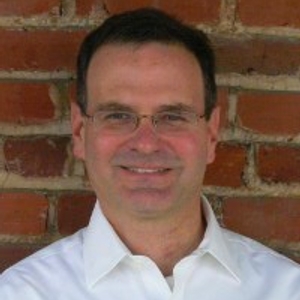Susan Sarandon supporting the protesters in Lower Manhattan. Photo: #Occupywallstreet.
People who care about climate change and peak oil have long despaired of convincing their national governments to take decisive action or even, in some cases, to acknowledge that there’s a problem.
Now, the world’s democracies seem to be losing the confidence of their citizens to deal with the economic crisis too.
Following on the Arab Spring, the ouster of Gadaffi and unrest in Britain, Greece and Spain, major protests are now spreading to all the world’s largest democracies. From Manhattan to Madrid to New Delhi, as the Great Recession continues with no end in sight, citizens are losing patience with governments that ask ordinary citizens to cut back while so clearly catering to the desires of the wealthy.
Voting, an empty rite
According to Nicholas Kulish in the New York Times today, “As Scorn for Vote Grows, Protests Surge Around Globe”:
Their complaints range from corruption to lack of affordable housing and joblessness, common grievances the world over. But from South Asia to the heartland of Europe and now even to Wall Street, these protesters share something else: wariness, even contempt, toward traditional politicians and the democratic political process they preside over.
They are taking to the streets, in part, because they have little faith in the ballot box.
In Israel, a country with relatively low unemployment, young protesters complain that the government is so beholden to Orthodox groups and so embroiled in its contest with the Palestinians that everybody else has lost their say. In India, after a 74-year old activist went on a public hunger strike, hundreds of thousands of protesters successfully pressured the New Delhi government to pass a strong anti-corruption law. And in Spain, which suffers the world’s highest official unemployment rate at 21%, tens of thousands of indignados or “the outraged” have occupied public squares, put up road blocks and held teach-ins demanding assistance.
This is what democracy looks like
Meantime, in the United States, the spirit of the protests in Wisconsin against Governor Scott Walker’s attacks on public-sector unions and middle class programs last year has seen a re-birth in the #Occupywallstreet encampment organized by Adbusters. Now in its eleventh day, the protest in Lower Manhattan has centered around an encampment in Liberty Plaza targeting financial inequity and corruption in government.
Each day has featured an event, such as a march against conspicuous consumption. As occupywallst.org put it:
On September 27th, 2011, we marched on the Financial District’s Luxury Night Out, where couples wore outfits that cost more than we will ever make in a month and looked at cars that cost more than we will ever make in a year, afterward, they went back to one of their many houses that cost more than we will make in our lifetime.
#Occupywallstreet has spread to more than 50 cities, including Boston and Chicago. Having lost faith in democratic processes like voting and also in traditional civil society groups such as labor unions, today’s young protesters are using Twitter and Facebook to form their own loose, peer-to-peer networks of activists.
Taking back our government from plutocracy

The rich haven’t controlled so much of America’s wealth since 1928, just before the Depression. Click to enlarge. Image: New York Times.
Despite their differences, these protests all aim to reverse the capture of national governments by moneyed special interests. And with income inequality in the US its highest level since the late 1920s, the rich have more money than ever. And from the Koch Brothers‘ numerous front groups to the US Chamber of Commerce to the American Legislative Exchange Council, which helps corporations write our laws, the wealthy have not been shy about turning that money into political power.
The situation is similar across the world, from Britain to Spain to Israel. As Yonatan Levi, a 26-year old protester in Israel told Kulish:
The protests were not acts of anger but of reclamation, of a society hijacked by a class known in Hebrew as “hon veshilton,” meaning a nexus of money and politics. The rise of market forces produced a sense of public disengagement, he said, a feeling that the job of a citizen was limited to occasional trips to the polling places to vote.
“The political system has abandoned its citizens,” Mr. Levi said. “We have lost a sense of responsibility for one another.”
At a crossroads
National governments may be able to regain legitimacy if they accede to the demands of their citizens and start rooting out the corruption that has allowed corporations and billionaires to take over government. That’s what happened in the United States in the 1930s, when government reforms helped insulate government from the power of the rich and New Deal programs helped slow the flow of wealth from the middle class to the wealthiest families. If FDR hadn’t acted to save the economy, America could well have fallen into the hands of bullies from the right or from the left.
Today, if politicians fail to deal with corruption and continue to allow the rich to pillage our economies, disrespect for government will only grow as unemployment and many types of hardship lead to civil unrest. The peace will be disturbed. As a response, could that other model from the 1930s, fascism, be in our future?
If you care about climate change or peak oil, don’t count on a man on a white horse to deliver solutions that today’s democracies, beholden as they are to the rich, cannot. Authoritarian regimes are not known for their ecological awareness.
Barring the total and almost immediate collapse of global industrial society, youth protesters may be the world’s best hope to go beyond fossil fuels before fossil fuels go beyond us.
(Video: Watch Cornell West address #Occupywallstreet.)






